‘Gas is getting more expensive than petrol’: should Russia expect fuel prices to stabilise in August?
Will the embargo allow to bring down the rise in prices for petrol and fuel gas?
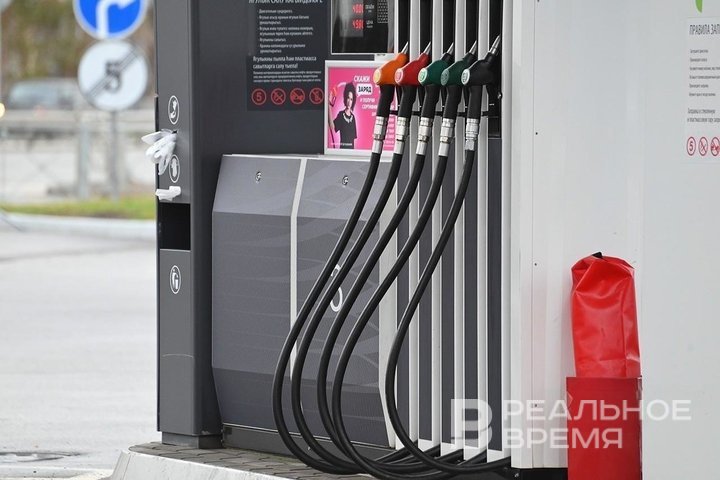
“If the embargo introduction last summer immediately led to a decrease in the petrol price tag, now the situation is fundamentally different. Prices are accelerated by the outstripping demand for AI-95, which has overtaken the rest, and manufacturers do not have time to cover it. As a result, stock quotes on the AI-95 jumped to a sky-high 74 thousand rubles per tonne. This is the first time we have seen such a bias," Irek Suleymanov, the head of the Association of Petroleum Products Supply Enterprises of the Republic of Tatarstan, explains the nature of price changes in the fuel market. Wholesale prices for propane gas (for GAZ, PAZ) also jumped — they increased in a month to 41 thousand rubles per tonne. “The export ban is likely to keep prices within the inflation range, but it is unlikely to lower them," predicts Stanislav Mitrakhovich, a leading expert at the National Energy Security Fund. At the same time, retail fuel prices in Tatarstan remain the lowest in the Volga Federal District.
Stock quotes did not feel the embargo
Restrictive measures on the export of motor petrol have been introduced in the country (an exception has been made for diesel fuel). The embargo is valid until October 2024. Moreover, the federal authorities announced the introduction of a long-term ban just a day before it began. On July 31, at a meeting in the State Duma, First Deputy Minister of Energy of the Russian Federation Pavel Sorokin announced that the extension of the embargo would help to “hedge” against high demand for gasoline.
The first day of the embargo did not bring miracles. By the end of the day, stock prices on the Saint-Petersburg International Mercantile Exchange (SPIMEX) continued to rise. According to data as of 4.33 pm Moscow time, the cost of AI-95 increased by 1.3% to 74,461 rubles per tonne, the cost of AI-92 — by 0.92% (to 55,880), diesel fuel rose by 0.18% to 61,500 rubles per tonne.
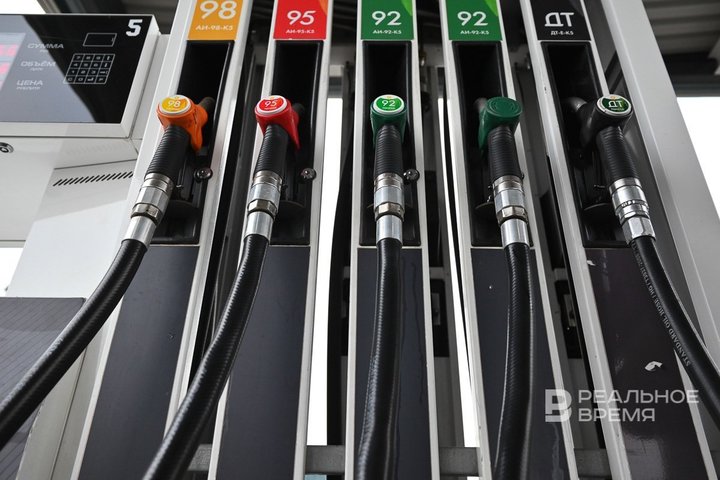
Simultaneously, prices at filling stations continued to rise. The average price of AI-95 was 54.3 rubles per litre, for AI-92 — 49.9 rubles per litre, and for diesel fuel — 60.7 rubles, follows from the data of the Russia Base. Official data on the dynamics of motor fuel prices stopped being published back in June, they confirmed in the Management for Ensuring the Rational Use and Quality of Fuel and Energy Resources in the Republic of Tatarstan State Budgetary Institution. According to SPIMEX, stock prices for AI-95 in July increased by almost 38% by the beginning of June last year, and since the beginning of the year — by over 60%.
Meanwhile, owners of private gas stations have been reducing wholesale purchases of the expensive AI-95 since the beginning of summer. As Garefetdin Miftakhutdinov, the head of the Economy filling station, told Realnoe Vremya, the difference between wholesale and retail prices has become “intolerable”.
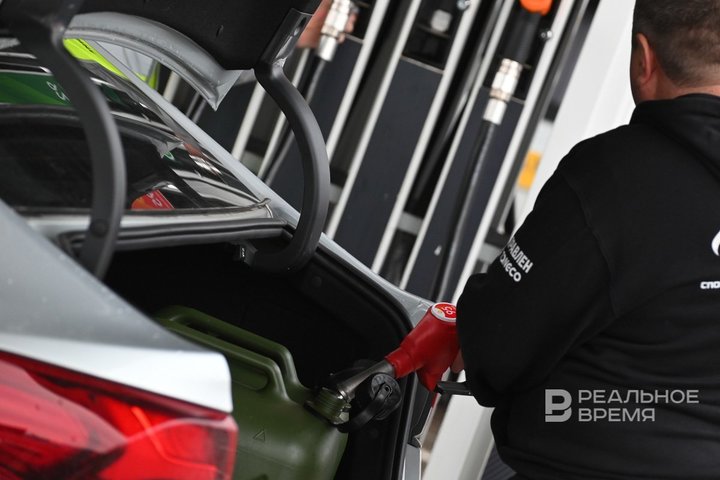
Fuel gas doubles in price
The twofold increase in wholesale prices has also affected gas engine fuel. According to the owners of independent filling stations, since August 1, Volga refineries have raised the purchase price for propane gas (they are refueled by Gazels, PAZ buses — author's note) to 41 thousand rubles per tonne. Although back in July, propane gas was released from factories at a price of 20,800 rubles per tonne.
Wholesale prices were raised by TANECO and Gazprom Neftekhim Salavat, which provide the fuel gas market in the Volga region. Realnoe Vremya has sent requests to the manufacturers, and the answers will be published upon receipt.
Owners of independent filling stations are still holding back retail prices at a loss, Garefetdin Miftakhutdinov said in a conversation with Realnoe Vremya. According to him, he buys fuel from the factory for 41 rubles per cubic metre, and sells it for 24 rubles. “This is insane, but I can't raise the price tag. Otherwise I'll be hated," he worries. According to the law, retailers do not have the right to raise prices above the inflation rate, and the FAS of the Russian Federation strictly monitors this.
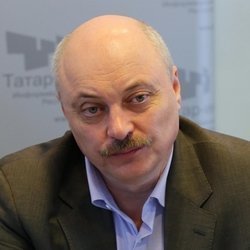
At the same time, methane (compressed gas) is not subject to price fluctuations. According to Artur Akhmetzyanov, the commercial director of the Srednevolzhsky branch of Gazprom Gazomotornoe Toplivo, propane gas prices have always been subject to great volatility, while methane prices are stable at the level of 23-25 rubles per cubic metre. Another thing is that the fleet of cars with methane engines is much smaller than with propane engines, so the dynamics of methane sales volumes is inferior to propane.
Do Chinese cars run on AI-95?
Irek Suleymanov explains the increase in prices on the fuel market by an unusual bias in the structure of consumption, which happened for the first time in 20 years. According to him, this season there has been an incredible boom in demand for AI-95, which was not particularly in demand before. After switching to Chinese cars, motorists began to fill up massively with this grade of petrol, and the share of its sales increased to 60%. Accordingly, the AI-92 sales shrank to 40%, although it had always been the other way around before.
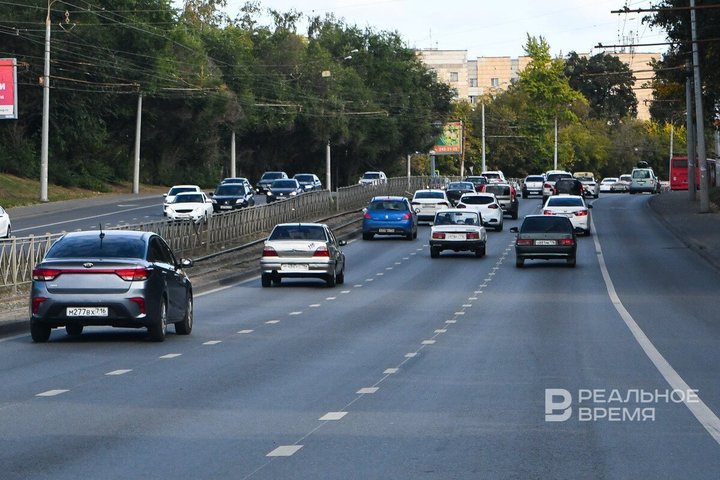
“The sales of AI-95 are constantly growing and now it accounts for about 60%, and the share of AI-92 has decreased to 40%. Apparently, production does not keep up with the change in demand, which fuels the rise in prices on the stock exchange. The difference between the wholesale and retail price for AI-95 is 13,000-14,000 rubles. This is absurd!” he stressed.
According to him, the Russian Fuel Union sent an appeal to the Ministry of Energy of the Russian Federation in early summer, calling for a change in the structure of production. The factors of price growth in it were the holiday season — Russians went on vacation in cars, the shutdown of refineries for repairs, the unwillingness of factories to increase the production of AI-95. As a member of the RTS, Irek Suleymanov hopes that extreme measures will help stabilise the fuel market: “Everything that is currently being produced, like the AI-95, will go to the domestic market," he expects.
Retail fuel prices in Tatarstan remain the lowest in Volga Region
The speaker assured Realnoe Vremya that there was no shortage of high-octane petrol grades. “Did you see queues at the filling stations near AI-95? No. So, it means it was enough for everyone who wanted to refuel," he said, adding that car owners had to pay a little more than usual. According to official data, the average cost of a litre of gasoline in the country as of July 29 was 57.3 rubles (on July 22 — 57.05 rubles). The cost of a litre of AI-92 is 52.9 rubles (52.72 rubles), AI-95 is 57.9 rubles (57.64 rubles).
In Tatarstan, due to high competition, retail fuel prices remain the lowest in the Volga Federal District, Irek Suleymanov assured. “There are 922 filling stations operating in the republic, of which 140 are idle due to overcrowding of the market," Robert Gilyaziev, the head of the Department for Ensuring the Rational Use and Quality of Fuel and Energy Resources in the Republic of Tatarstan, clarified in a conversation with Realnoe Vremya.
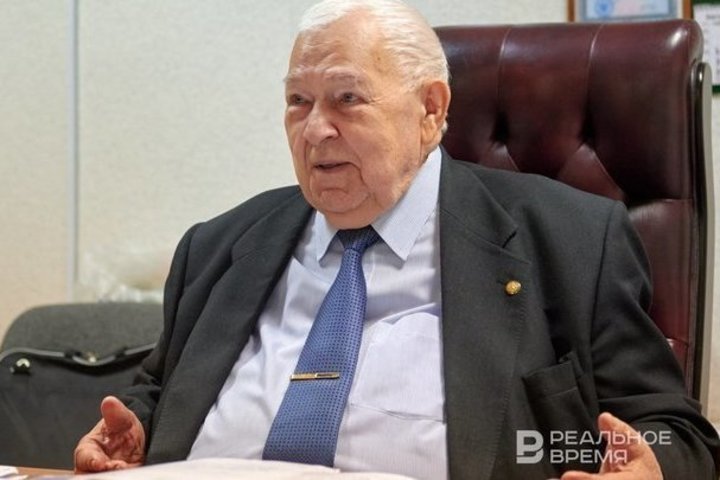
“Our sellers risk showing themselves to be unreliable suppliers”
A year ago, the Russian government already imposed a ban on petrol exports. Market participants explained its necessity by that the state and manufacturers could not agree among themselves, so a tough decision was made. “Until you folks come to an agreement, exports will be closed. Of course, it helped at the moment, but such measures cannot be applied for a long time," said one of the interlocutors of Realnoe Vremya. However, the situation is fundamentally different now, Irek Suleymanov believes. In his opinion, fuel prices will begin to decrease as the market becomes saturated with automotive gasoline.
“The export ban is likely to keep prices within the inflation range, but it is unlikely to lower them," Stanislav Mitrakhovich, a leading expert at the National Energy Security Fund, forecasts.
“The effect on consumers from this kind of impact cannot be measured," Tamara Kandelaki, CEO of Infotech Consult, disagrees, the expert sees the risk from the embargo that manufacturers can disrupt contracts. “New sales markets are very difficult, even unusual. Our sellers risk showing themselves to be unreliable suppliers.